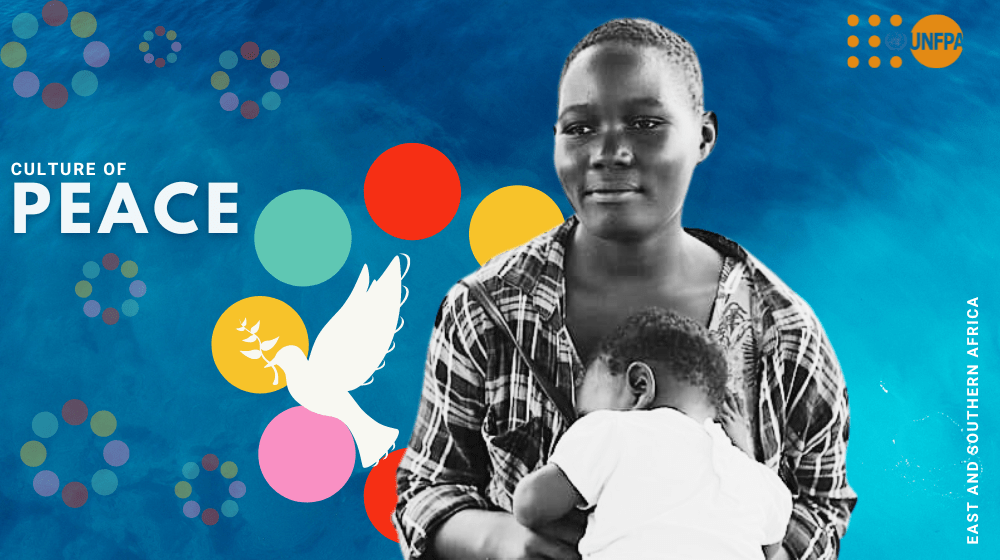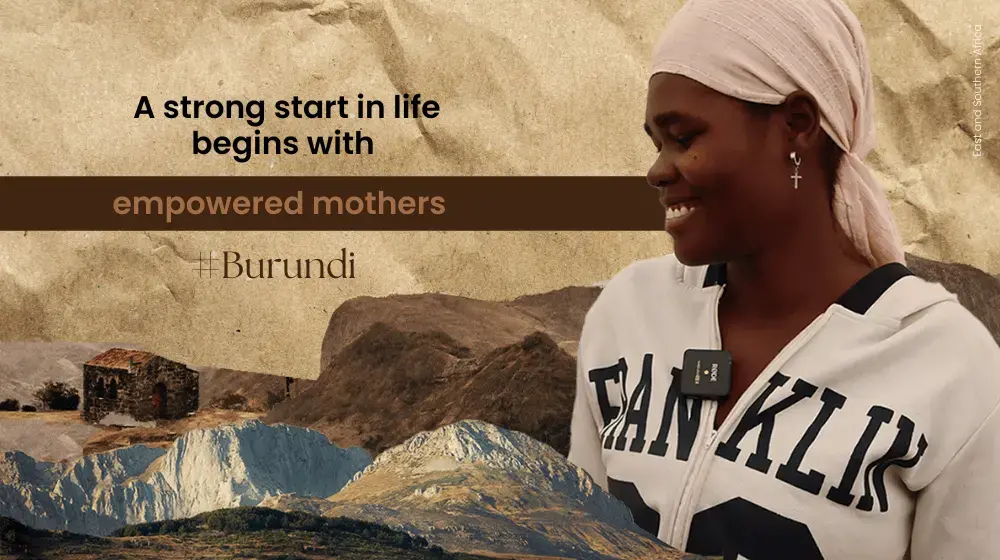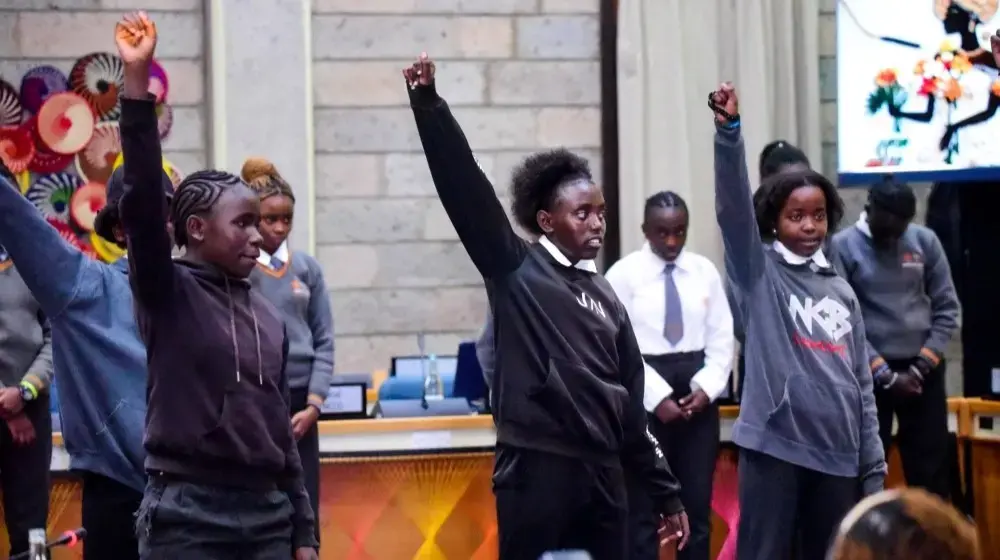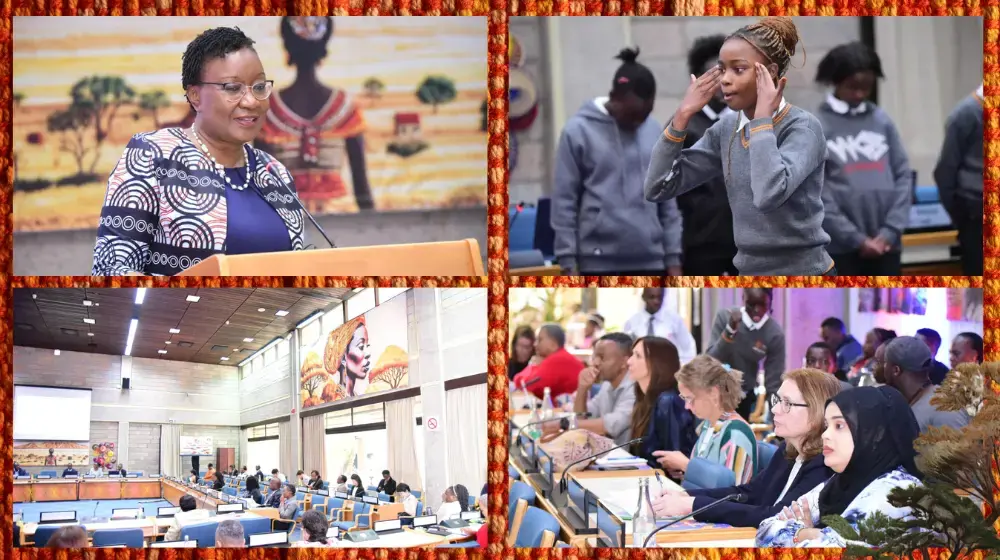In a quaint village in West Pokot, Kenya, under the shade of a sprawling acacia tree, young boys sit attentively listening to the speaker narrating stories about the harmful effects of female genital mutilation (FGM). This is part of the Nitasimama Imara program, an initiative that empowers young men to push back against gender-based violence. Mwangi, one of the younger boys in the group, raises his hand and loudly asks, “How can I help my sister stay safe?”
The speaker paused for a second. It’s a simple question, but loaded with deeper context. Peace begins with equality, and equality begins with understanding. At UNFPA, we believe that the seeds of peace are sown when young people raise their hands and voices—when beautiful minds are opened, when gender norms are challenged, and when the next generation questions the status quo to build a better world.
As we mark the 25th anniversary of the United Nations General Assembly’s Declaration and Programme of Action on a Culture of Peace, true peace is not just the absence of conflict. It is a fragile, living culture and value that must be nurtured, especially in East and Southern Africa.
But what does gender equality have to do with peace? It is everything. Gender inequality can fuel cycles of violence. In communities where masculinity is linked to aggression, young men turn to conflict. This is why initiatives that promote positive masculinity are so crucial—going against harmful norms and transforming potential perpetrators into champions of peace. Indeed, research shows that communities thrive and veer away from conflict when gender equality is in place. And when women are involved in peace processes, the resulting agreements are more likely to endure.
The heart of peacebuilding efforts beat from women and young people. From Angola to South Sudan, UNFPA has supported programs that engage youth in peace processes, leading to 360 degree transformations. Deng and Ajang, once troublemakers in Juba, are now peacebuilders in their community. Deng recalls, “From street fights, to maintaining peace in town, this is what we are meant to do.” Their transition from violence to peace shows the power of inclusion. When young people are given the right space - a seat at the table - they bring new perspectives, fresh energy, and a deep commitment to reconciliation.
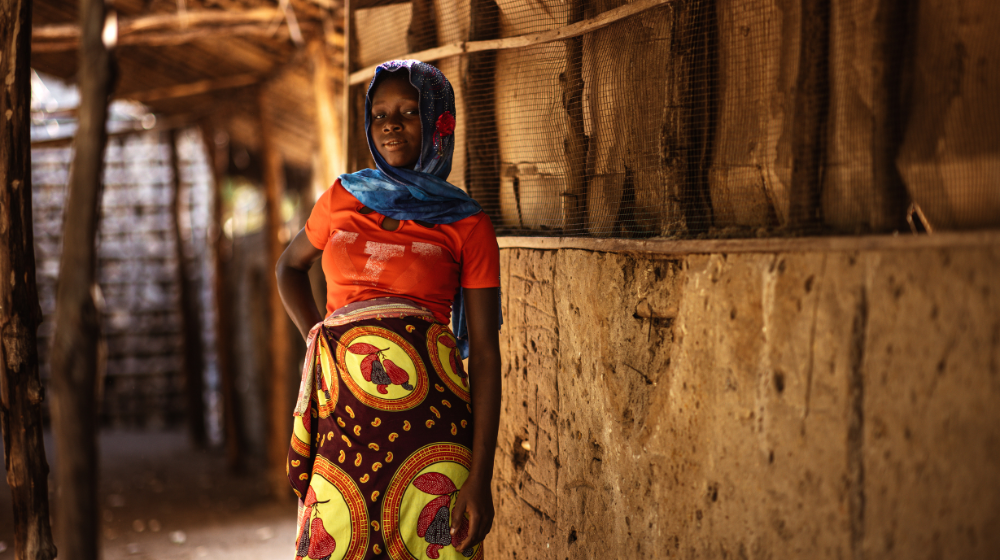
Fragile peace
However, peace will remain fragile without addressing the underlying issues that fuel conflict and instability. Adolescent pregnancy remains a significant challenge in this region. We see hundreds of young girls leaving school and dimming their otherwise promising future due to early and unintended pregnancies. These girls, who have the imagination to change the trajectory of our lives, are instead burdened with responsibilities that they are not ready to bear. Ensuring that they have access to comprehensive sexual and reproductive health services is not just a health issue—it is a cornerstone of peace. When girls can control their own reproductive health, they can remain in school, pursue careers, and contribute to their communities, reducing the likelihood of being anchored in the cyclical trap of poverty and violence.
Moreover, data and evidence play a crucial role in shaping our strategies for peace and development. At UNFPA, we are committed to using the power of data to identify where interventions are needed most and to measure the impact of our work. But data alone is not enough. We must move from a focus on funding to financing sustainable solutions that empower communities to take charge of their own futures. This shift requires innovative approaches that leverage public and private partnerships, ensuring that resources are not just available, but are used in ways that are efficient, impactful, and sustainable.
As we look back into the last quarter of the century, we still have a lot of work in fixing the fissures that are creating major strain in our development efforts. But there is always hope, and in the prose of African singer Angelique Kidjo, “Your brain is your greatest weapon. Connect it to your heart, and you can go anywhere.” Inspiring words of reminder to connect our hearts and minds to build a culture of peace that endures.

